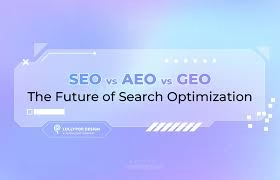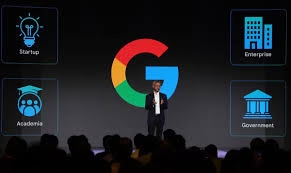The search landscape of 2025 has shifted dramatically. Classic Search Engine Optimization (SEO) now faces competition from Generative Engine Optimization (GEO) — a strategy designed to optimize for AI-powered platforms like ChatGPT, Google AI Overviews, and Perplexity.
SEO vs GEO — The Core Differences
- SEO (Search Engine Optimization):
- Relies on keyword targeting, backlinks, and technical factors (site speed, mobile-friendliness, structured data).
- Success is measured by traffic, rankings, and CTR.
- E-E-A-T (Experience, Expertise, Authoritativeness, Trustworthiness) remains central.
- GEO (Generative Engine Optimization):
- Focuses on making content easily parseable for AI summaries.
- Rewards structured, fact-rich writing with stats, quotes, and clear formatting.
- Success is tracked by AI citations, reference rates, and sentiment analysis.
- Handles longer natural-language queries (avg. 23 words vs SEO’s 4).
Both approaches overlap on fundamentals: high-quality content and authority. GEO builds on SEO rather than replacing it.
Market Impact
- 80% of users now rely on AI summaries for at least 40% of searches.
- Traditional site traffic has dropped by up to 25%.
- GEO can increase visibility in AI-generated answers by 30–40%.
- Legal frameworks are evolving, with collaborations (e.g., The Guardian + OpenAI) and lawsuits (e.g., The New York Times) shaping attribution rights.
Strategies for News Websites
For SEO:
- Maintain crawl budgets, NewsArticle schema, and mobile optimization to dominate Google News & Top Stories.
- Use keyword clusters for both breaking stories and evergreen explainers.
- Strengthen internal linking and ensure fast load speeds.
For GEO:
- Add TL;DR summaries, FAQs, bullet lists, and data tables for AI parsing.
- Use exclusive insights and authoritative commentary to boost AI citations.
- Regularly update with time-stamped context (“as of 2025”) to remain relevant.
- Open content for AI spiders (robots.txt) and avoid JavaScript-heavy pages.
- Track AI mentions using tools like Ziptie.dev and Semrush AI kits.
- Test content visibility with queries on platforms like Perplexity.
Integration Tactics:
- Blend conversational long-tail phrases with SEO keywords.
- Use UGC sources (e.g., Reddit, Quora) to fill citation gaps.
- Craft “X vs. Y” comparisons (policy debates, market breakdowns) to fit AI’s explanatory style.
- Measure hybrid KPIs: track both search referrals and AI platform mentions.
The Future of Search: Answer Engines
As AI-driven “answer engines” replace traditional link lists, news organizations must hybridize SEO and GEO to survive. Those that adapt will retain relevance, trust, and revenue in a multi-engine ecosystem — where visibility now depends as much on AI overviews as on Google’s front page.



